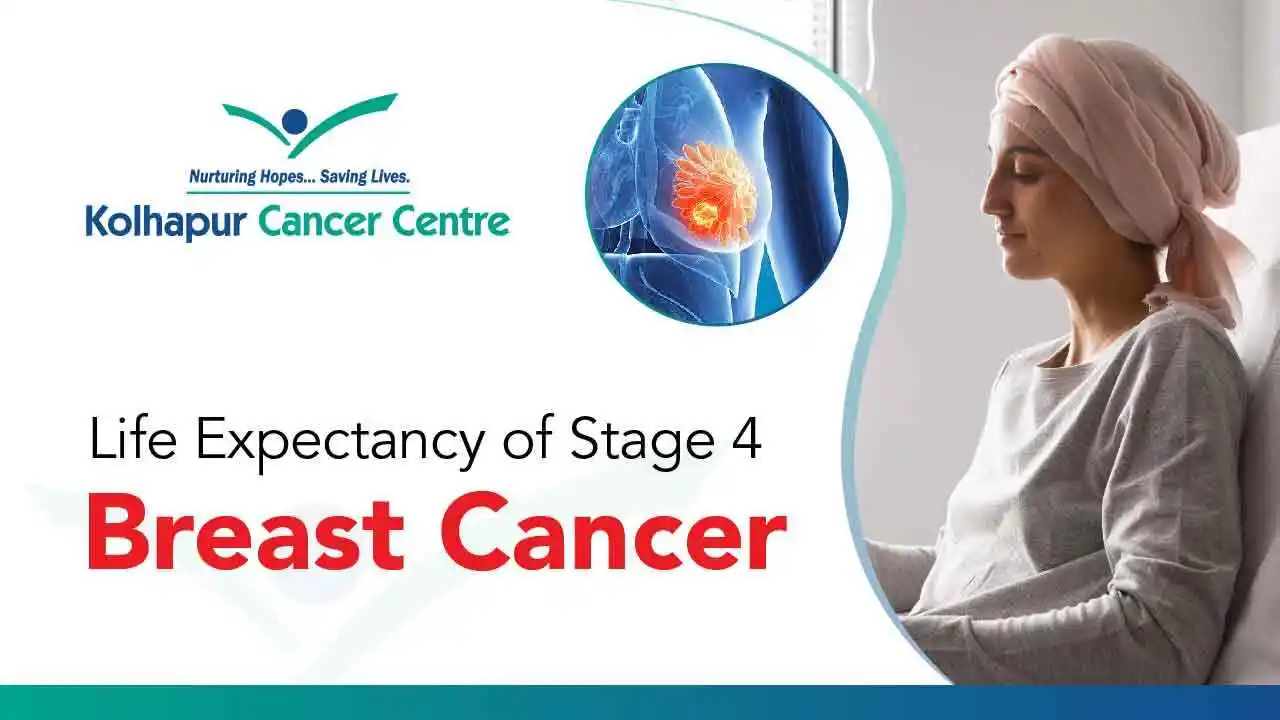Understanding the Life Expectancy of Stage 4 Breast Cancer
Navigating life after a stage 4 breast cancer diagnosis can seem like traveling into an unknown territory, fraught with anxiety and a cloud of uncertainty. Among the countless questions that may arise, “What is my life expectancy?” is often at the forefront. By shedding light on this vital topic, we aim to arm breast cancer patients with the knowledge to make informed decisions and find hope in their unique journeys.

Introduction
When diagnosed with stage 4 breast cancer, or metastatic breast cancer, people experience a wide range of emotions and questions about their future. This stage is characterized by cancer that has spread beyond the breast and nearby lymph nodes to other organs of the body. The impact on life expectancy can vary greatly and is influenced by several key factors. In this comprehensive guide, we’ll explore these factors in depth and provide insights into improving the quality of life during treatment.
Factors Influencing Life Expectancy
Understanding what affects life expectancy in stage 4 breast cancer is empowering. Although no two cases are exactly alike, several general factors can guide your understanding and discussion with your healthcare team.
-
Treatment Options
The treatments available for stage 4 breast cancer have advanced significantly over the years, giving patients more hope and time. These may include surgery, radiation, chemotherapy, hormonal therapy, and targeted therapy. Discuss the potential outcomes and side effects of each with your oncologist, allowing treatment decisions to align with your preferences and quality-of-life goals.
-
Metastasis and Spread
The location and extent of metastasis play significant roles in life expectancy. Cancer that has spread to vital organs, such as the lungs, liver, or brain, may pose greater challenges. Regular monitoring and follow-ups can help identify new metastases early, potentially impacting treatment plans and outcomes.
-
Patient’s Health Condition
An individual’s overall health, age, and response to treatment all contribute to the complex picture of life expectancy. A strong immune system, healthy lifestyle choices, and compliance with medical advice can positively influence long-term health and resilience.
-
Genetic and Molecular Profiles
Advancements in medical science have revealed that genetic and molecular characteristics of the cancer cells themselves can significantly influence the progression of stage 4 breast cancer. Tests identifying specific gene mutations or protein expressions can provide crucial information for personalised treatment plans. For instance, cancers exhibiting the HER2 protein may respond well to therapies targeting this protein, thereby potentially improving life expectancy.
What to Expect in Stage 4 Breast Cancer?
Navigating through stage 4 breast cancer involves preparing for a variety of symptoms and medical experiences, reflecting the complex nature of the disease’s progression.
Patients may experience variable physical symptoms, such as increased fatigue, pain, and changes in appetite, alongside the necessity for regular medical appointments to monitor the disease.
Treatments may include a combination of chemotherapy, radiation therapy, targeted treatments, and hormonal therapy, tailored to the individual’s specific condition and how the cancer responds.
It’s paramount to maintain open communication with the oncologist, discussing symptoms, side effects, and any concerns about the treatment.
Engaging with palliative care services, alongside treatment, can significantly enhance quality of life, addressing both physical discomfort and emotional well-being.
Improving Quality of Life
While life expectancy is a critical consideration, focusing on the present and enhancing your quality of life is equally important. Here’s how you can make the most of each day during your battle with stage 4 breast cancer.
-
Palliative Care
Palliative care is specialized medical care that focuses on relieving symptoms and improving the quality of life for patients with serious illnesses. It’s not just for end-of-life circumstances and can help manage pain, fatigue, and emotional distress. Integrating palliative care early into your treatment plan can be a game-changer.
-
Support Systems
Building a strong support system can help you cope with the emotional and practical challenges of living with stage 4 breast cancer. Family, friends, support groups, and mental health professionals are there to provide the support and understanding you need.
-
Mental Health Considerations
Dealing with the psychological toll of a stage 4 diagnosis is as important as managing the physical symptoms. Therapeutic interventions like counselling, mindfulness, and support forums can provide solace and help you stay resilient and optimistic.
-
Treatment Adjustments
Stage 4 breast cancer is typically not curable, but it can often be managed as a chronic condition. Acquainting yourself with the various treatment adjustments, such as altering medications, changing therapy types, or participating in clinical trials, can open new avenues for managing the disease over the long haul.
Get in touch with Kolhapur Cancer Center
At the Kolhapur Cancer Centre, we believe in a holistic approach to cancer care. Our team of experienced oncologists and support staff is dedicated to providing personalized treatment with a compassionate touch. Connect with us to explore your options and find the support you need on your stage 4 breast cancer journey.
Knowing the nuanced intricacies of life expectancy in stage 4 breast cancer is essential for making informed decisions and for finding peace amidst the storm. The road ahead may be challenging but armed with knowledge and positivity, there is always room for hope and meaningful life, no matter the prognosis.
Previous article
What is the Life Expectancy for Esophageal Cancer?
Next article
What Is the Survival Rate for Colon Cancer?

